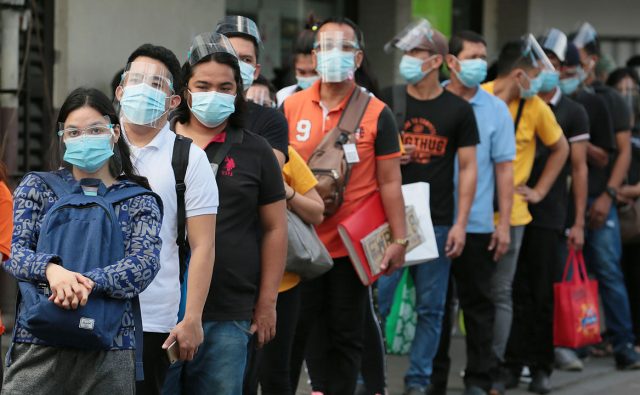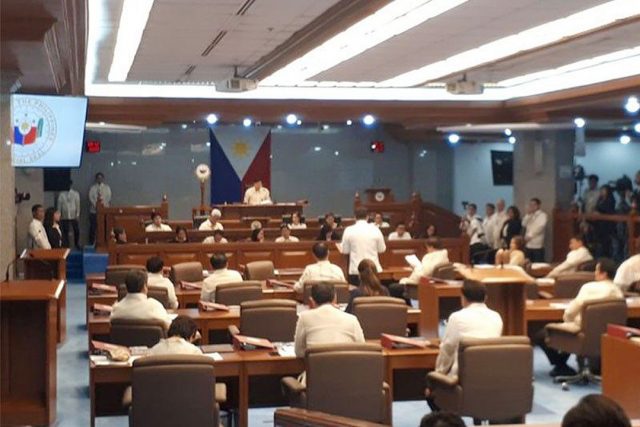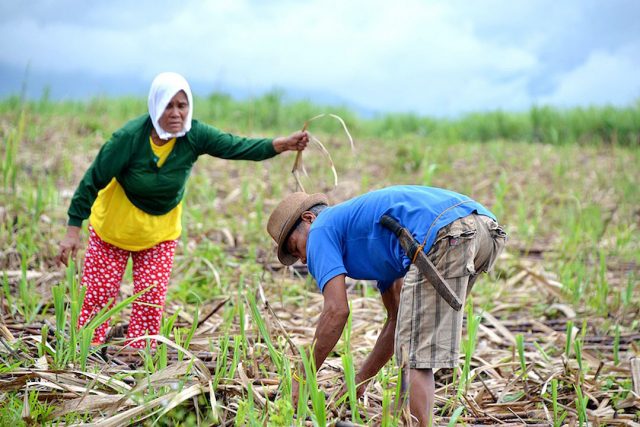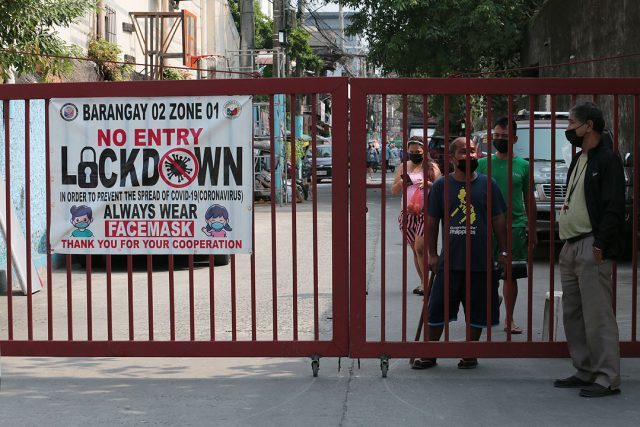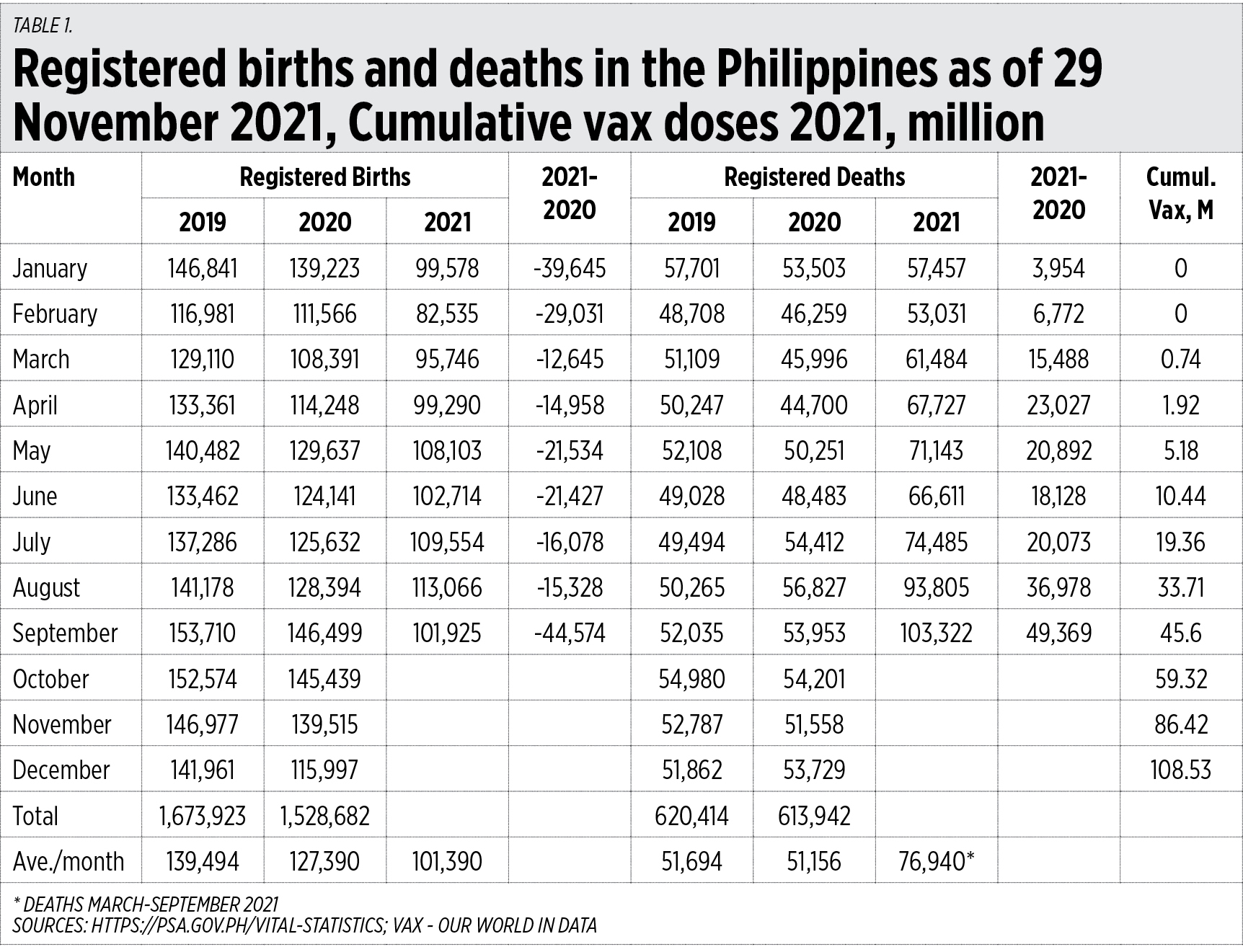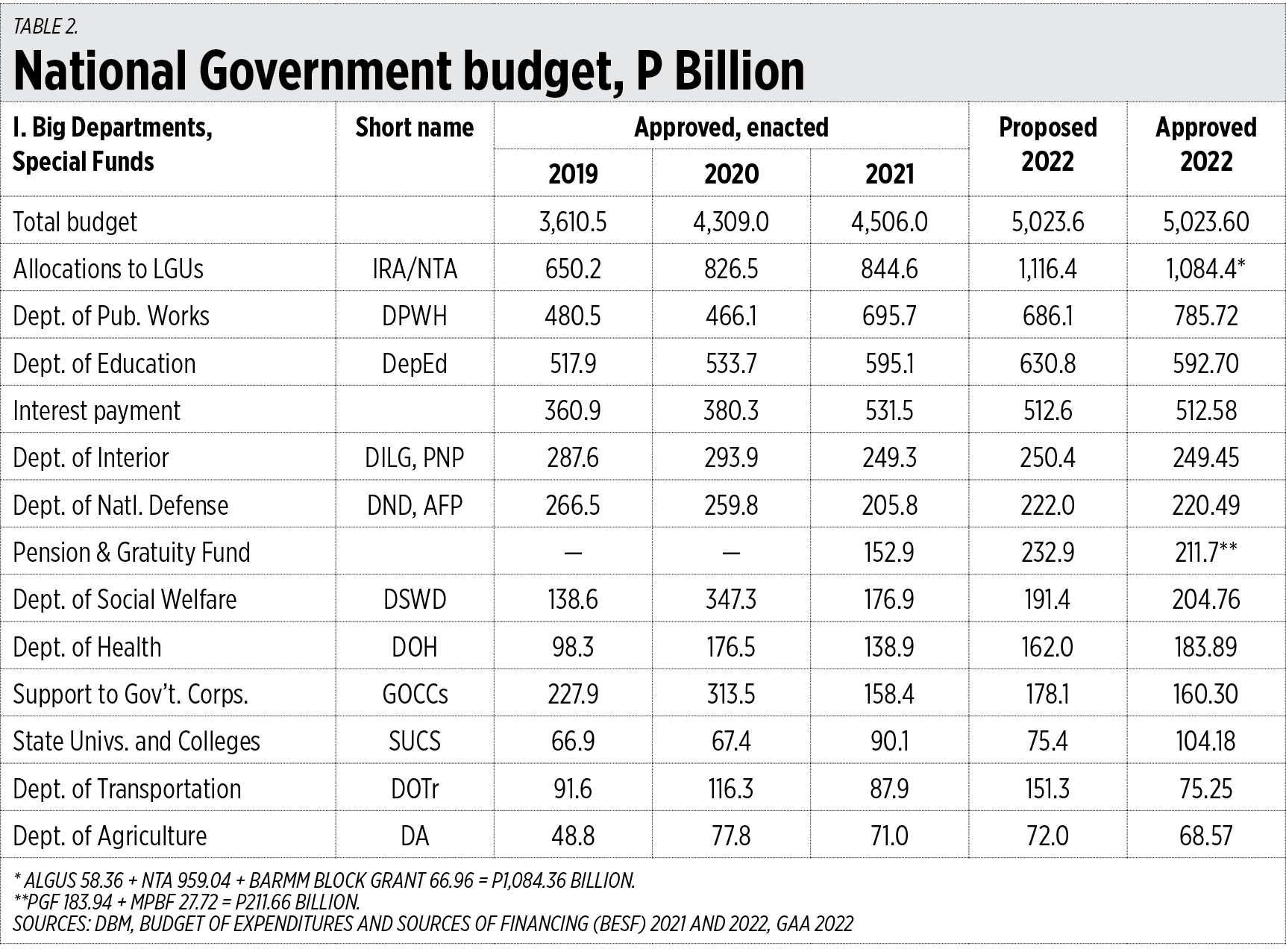Philippines posts record 33,169 COVID infections
By Kyle Aristophere T. Atienza, Reporter
PRESIDENT Rodrigo R. Duterte might further tighten the lockdown in the Philippine capital and nearby cities, according to the presidential palace, as the country posted record coronavirus infections of more than 33,000 on Monday.
The Department of Health (DoH) reported 33,169 cases on Monday, probably spurred by the highly mutated Omicron variant, bringing the total to 3 million. The death toll hit 52,293 after 145 more patients died, while recoveries increased by 3,725 to 2.79 million it said in a bulletin.
The agency said 46% of 73,234 samples on Jan. 8 tested positive for coronavirus disease 2019 (COVID-19), way above the 5% threshold set by the World Health Organization.
There were 157,526 active cases, 4,994 of which did not show symptoms, 147,912 were mild, 2,858 were moderate, 1,461 were severe and 301 were critical.
DoH said 99% of the cases occurred from Dec. 28 to Jan. 10. The top regions with new cases in the past two weeks were Metro Manila with 18,535, Calabarzon with 7,443 and Central Luzon with 3,403 cases. It added that 2% of the deaths occurred in November, 12% in October, 36% in September and 15% in August.
The Health department said 86 duplicates had been removed from the tally, 73 of which were recoveries and two were deaths, adding that 124 recoveries were relisted as deaths. Ten laboratories failed to submit data on Jan. 8.
Also on Monday, the OCTA Research Group said the positivity rate in Metro Manila had exceeded 50%, which could mean that cases in the region were “close to the peak.”
“There is hope that the positivity rate is already stalling or in other words, it might be close to the peak,” OCTA fellow Fredegusto P. David told CNN Philippines.
“If it starts to peak, we may already start to see a downward trend next week,” he said. “But this is all preliminary. It is still early to say if it is already peaking.” Mr. David said the country might record as many 40,000 daily infections this month.
“If we hit 40,000 to 50,000, this would be close to the worst case because after that, we would be losing visibility already,” he said. “We won’t even see 100,000 cases because we’re only testing about 70,000.”
Testing czar Vivencio B. Dizon apologized for the slow turnout of test results, saying more people were getting tested amid the surge.
He also said a number of medical and laboratory technicians have caught the coronavirus. “They need to isolate themselves and they could not report for work,” he said in Filipino. “That’s our biggest challenge right now.”
The country’s pandemic task force has shortened to five days the quarantine period for coronavirus-stricken health workers who are fully vaccinated and do not show symptoms.
Mr. Dizon said the government might shorten the quarantine period for more people. “For now, the policy is only for healthcare workers.”
“Our experts are studying what other countries have been doing, like the United States and Europe, which shortened the isolation especially for vaccinated people,” he said. “That is being studied.”
Meanwhile, the government might raise the coronavirus alert in Metro Manila to Level 4 once its health system reaches the threshold, Cabinet Secretary Karlo Alexei B. Nograles told the ABS-CBN News Channel.
The government would not hesitate to raise the alert level if healthcare use tops 70%, he said. “We continue to manage the situation so we do not reach the threshold. That means making sure our healthcare is well enough to accommodate those who need to be hospitalized.”
The capital region is under the third of a five-scale alert system until Jan. 15.
Mr. Nograles said an area with high levels of virus growth, average daily attack and healthcare use rates will be placed under Alert Level 4. The metro’s first two metrics are high, while healthcare use was moderate, he added.
On Monday, the Health department said 38% of intensive care units (ICU) in the Philippines were occupied, while 41% of isolation and ward beds had been used. In Metro Manila, 52% of ICUs and 54% of isolation beds were occupied, while 67% of ward beds had been used.
Health advocates have been urging the government to raise the quarantine level in Metro Manila and boost containment measures to contain the surge probably spurred by the highly contagious Omicron variant, which they said could exhaust the country’s health system.
State decisions on quarantine have failed to take into account health workers, who are the pillars of the country’s pandemic response, said Joshua L. San Pedro, co-convenor of the Coalition for People’s Right to Health.
Mr. San Pedro, a doctor, said the government had yet to consider the availability of health workers in setting the alert level for an area.
“With the health system chronically understaffed and far from the ideal health worker-to-population ratio, we are now seeing the effect of that shortage when those who are going on duty are being afflicted by what is likely a very infectious variant,” he said in a Facebook Messenger chat.
He added that instead of addressing the shortage, DoH has “resorted to shortening quarantine and isolation periods, which might put more staff and patients at risk of potential outbreaks in facilities.”
“Two years and two surges later, the gov’t does not seem to have learned anything,” said Gene A. Nisperos, a board member of the Community Medicine Development Foundation, Inc.
“Even the metrics it uses, which was not much helpful in the past two surges, is the same,” he said in a Messenger chat, noting that very little was done when cases were declining about the shortage in health workers.
“The problem of severe understaffing remains unaddressed,” the doctor said.
Roldan Clumia, president of the St. Luke’s Medical Center Employees Association, said in a Messenger chat many health workers had yet to receive their special risk allowances promised by the government.
In a letter dated Jan. 10, the Private Hospital Workers Alliance of the Philippines urged the Health department to cover all health workers for benefits provided by law.

